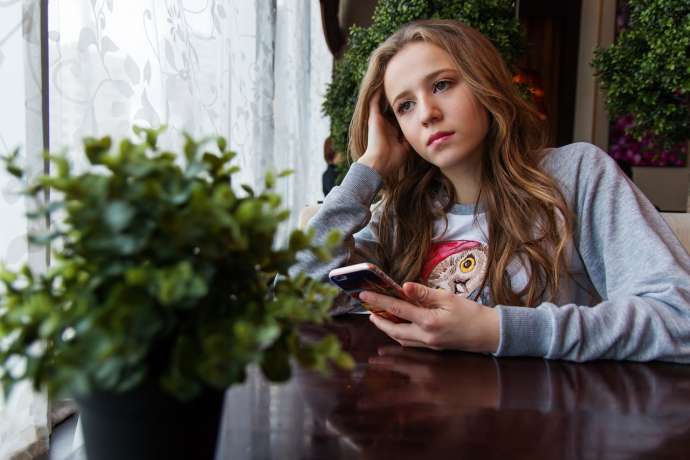STA, 14 September 2021 - A survey UNICEF Slovenia carried out in June among 400 respondents aged 10 to 18 has shown that a lack of quality inter-personal relations during the Covid-19 epidemic has deepened distress of children and youths in Slovenia. Many children and youths do not turn to adults for help and are trying to resolve their problems themselves.
The survey on mental health of children and youths in Slovenia has also shown that the majority felt strained or under stress "often or all the time" in the past year, UNICEF Slovenia said in a press release on Tuesday.
UNICEF Slovenia has been warning for some time that school closure and other measures to contain the epidemic have had a largely negative impact on children, with risks of abuse, violence and poverty increasing alongside inadequate diet, a rise in overweight children, and a considerable rise in psychological distress.
As many as 70% felt unexplained pain in the stomach or chest, did not feel well physically, or experienced sleep disorders, long-lasting sadness and despair. Some of them felt several of these symptoms simultaneously for a longer period of time, and almost 50% reported to be more anxious than before the epidemic.
21% assessed their mental health as poor, 60% are more afraid of the future as a result of the epidemic, and the majority address their issues without the help of others.
The distress of children and youths remains largely overlooked. The pandemic has caused many new instances of distress, while further deepening the existing issues, said family therapist Polona Greif.
"The scope of much of the distress has not yet become fully visible, but will be certainly felt for a long time by both society and by the most vulnerable individuals," she added.
A rise in distress among children has also been noticed at UNICEF's safe points around the country. There are 1,050 safe points in 120 towns, with more than 2,050 trained adults providing protection, help or just a piece of advice.






